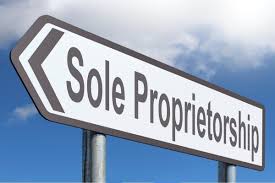When an individual passes away, their estate typically manages their assets, including property, investments, and personal belongings. One question that often arises in the realm of business succession is whether an estate can own a sole proprietorship business. The simple answer is nuanced, and the question warrants a deeper look into estate law, business ownership structures, and the concept of a sole proprietorship.
In this article, we will explore the legal possibilities and limitations regarding whether an estate can own a sole proprietorship business, what happens to such a business upon the owner’s death, and how heirs can continue the business after an individual’s passing.
What is a Sole Proprietorship?
Before delving into the specifics of estate ownership, it’s essential to first understand what a sole proprietorship is. A sole proprietorship is the simplest form of business ownership. In this structure, the business is owned and operated by a single individual who assumes all responsibility for the business’s operations, including profits, losses, liabilities, and debts. This type of business does not require formal registration (other than local business licenses) and is not legally separate from its owner.
Sole proprietorships are common among small business owners, freelancers, consultants, and tradespeople, as they offer flexibility and ease of management. However, this also means that the business is tied directly to the individual, and the owner is personally responsible for all aspects of the business.
What Happens to a Sole Proprietorship Upon the Owner’s Death?
The question of whether an estate can own a sole proprietorship business primarily arises after the death of the business owner. When a sole proprietor passes away, the ownership of the business automatically transfers to the owner’s estate. However, the fate of the business itself depends on various factors, including the provisions made in the will, the terms of any relevant partnership or operating agreements, and state-specific laws.
1. The Estate and Business Assets
Upon death, the estate steps in as the legal entity responsible for managing the deceased individual’s affairs, including the sole proprietorship business. The personal representative or executor of the estate typically handles the business’s financial obligations and makes decisions about the business’s future.
- Business Continuation: If the deceased’s will specifies that the business should continue after their death, the estate may temporarily operate the business to ensure a smooth transition. This, however, is usually a short-term arrangement. An estate cannot directly “own” the business indefinitely in the same manner as an individual can.
- Business Sale or Transfer: The executor of the estate may choose to sell the business or transfer its assets to beneficiaries, provided this is consistent with the deceased’s wishes. If the business involves intellectual property, client contracts, or real estate, these may be sold off or inherited by heirs.
2. Legal and Tax Implications
One of the biggest challenges when an estate inherits a sole proprietorship is the issue of taxation. Sole proprietorships are not separate entities for tax purposes; instead, the owner’s personal income tax return reflects the business’s profits and losses. When the owner passes away, their tax obligations don’t disappear, and the business may continue to generate income or incur expenses that need to be reported.
- Estate Tax: The estate may be subject to federal and state estate taxes, depending on the value of the deceased’s assets, including the business.
- Income Tax: If the business continues to operate during the probate process, the estate may need to file income tax returns, report profits or losses, and handle any ongoing liabilities.
Can an Estate Own a Sole Proprietorship Business Long-Term?
While an estate can temporarily own and manage the business as part of its responsibility in settling the decedent’s affairs, an estate cannot own a sole proprietorship business for the long term. A sole proprietorship is inherently tied to the individual owner, and ownership is not transferrable in the same way as other business structures, such as corporations or limited liability companies (LLCs).
If the beneficiaries of the estate wish to continue the business, they would need to consider transitioning the business into a different structure. For example, the heirs could:
- Incorporate the Business: The heirs may choose to convert the sole proprietorship into a corporation or LLC. This change would provide legal separation between the business and the individual owners (the heirs) and offer liability protection. It would also allow the business to continue operating beyond the death of the original owner.
- Sell the Business: If the heirs do not wish to continue the business, the estate may decide to sell it to a third party. This could include selling business assets, intellectual property, or client lists to another business owner.
- Transfer the Business to Heirs: In some cases, the business can be transferred to the heirs as part of the estate distribution, and they can choose to run it as individuals. However, the business may still need to be formally registered, and the heirs must consider whether they want to continue operating it as a sole proprietorship or transition to another business structure.
Steps for Heirs to Take When Inheriting a Sole Proprietorship
If the beneficiaries of the estate wish to inherit and continue the sole proprietorship business, they must follow several key steps to ensure that the business is transferred and operated legally.
1. Review the Will and Estate Plan
The first step is to review the decedent’s will, if one exists, to understand the deceased’s wishes regarding the business. If the will specifies that the business should be passed to a particular heir or liquidated, the estate executor must ensure that these instructions are followed. If no will exists, state law will determine how the business and its assets are distributed.
2. Handle Business Debts and Liabilities
The estate must first address any outstanding business debts or liabilities before transferring the business to the heirs. This includes settling any loans, paying taxes, and addressing contractual obligations. The business’s ongoing operations should be carefully evaluated to ensure that they don’t incur additional liabilities during the transfer process.
3. Register the Business
If the heirs wish to continue the business, they may need to formally register it with the state as a new entity. This may involve applying for an employer identification number (EIN), obtaining the necessary business licenses, and registering the business name. Depending on state laws, the heirs may choose to form an LLC, corporation, or other business structure to ensure that the business operates legally.
4. Seek Professional Advice
Inheriting and managing a sole proprietorship business involves complex legal and financial issues. Heirs should consider consulting with professionals, such as business attorneys, accountants, and tax advisors, to navigate the process and make informed decisions about the future of the business.
Conclusion
While an estate can temporarily own a sole proprietorship business following the death of the owner, it cannot continue to operate the business in this structure for the long term. A sole proprietorship is inherently tied to the individual owner, and upon their passing, the estate may be responsible for selling or transferring the business. However, heirs have options to continue the business by transitioning it into another legal structure, such as a corporation or LLC, or by selling the business to a third party.
For those inheriting a sole proprietorship, it is important to understand the legal, financial, and tax implications of managing the business during the probate process and beyond. By seeking professional guidance and carefully following legal procedures, heirs can ensure that the transition is smooth and that the business continues to thrive, if desired.


